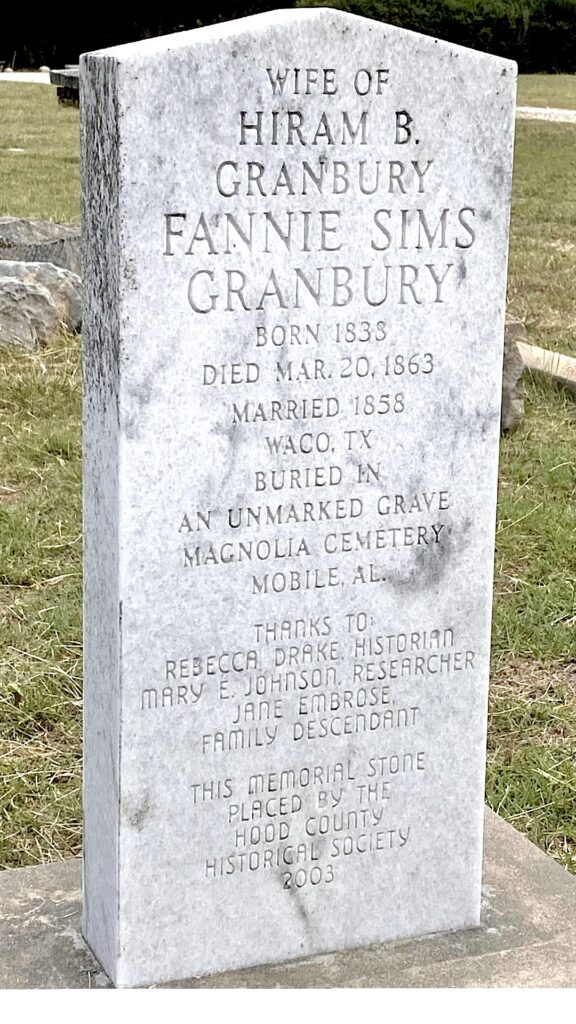A Civil War Love Story: Fannie and Hiram Granbury
In the tumultuous years leading up to the American Civil War, a young woman named Fannie Sims found love in the heart of Texas. Born in Alabama in 1838, Fannie’s life took a dramatic turn when she moved to Waco and met Hiram B. Granbury. Despite their age difference – he was 27, she just 20 – the couple married in 1858, unaware of the trials that lay ahead.
As the nation plunged into civil war, Hiram joined the 7th Texas Infantry in Marshall, Texas. Devoted to her husband, Fannie followed him, beginning a journey that would take her across the war-torn country. Their lives were upended when Hiram was captured at Fort Donelson. In a touching display of compassion, Union General Ulysses S. Grant granted Hiram’s request for time to ensure Fannie’s safety before his imprisonment.
While Hiram was moved between prison camps – from Camp Douglas to Camp Chase, and finally to Fort Warren in Boston Harbor – Fannie showed remarkable resilience. She even relocated to Boston to be near her husband. However, tragedy struck when Fannie fell ill with mysterious stomach pains.
In a twist of fate, Hiram was paroled on July 29, 1863, to be with Fannie during her surgery in Baltimore. The diagnosis was grim: incurable ovarian cancer. Fannie returned to her home state, settling in Mobile, Alabama, where she passed away on March 20, 1863. The war had left the couple impoverished, and Fannie was laid to rest in an unmarked grave in Magnolia Cemetery.
For years, Fannie’s story remained shrouded in mystery. Some believed she had been abandoned in hostile northern territory, a casualty of war. However, dedicated researchers have since uncovered the truth. Edward Lanham of Brooks, Georgia, Mary Eddins Johnson of Mobile, Alabama, and Jane Embrose, a descendant of General Granbury, worked tirelessly to piece together Fannie’s final days. Their efforts revealed that Fannie was not a victim of war, but of a tragic twist of fate and the harsh realities of her time.
This revised story of Fannie and Hiram Granbury serves as a poignant reminder of the personal tragedies that unfolded against the backdrop of America’s Civil War, highlighting the enduring power of love in the face of adversity.

